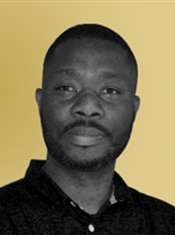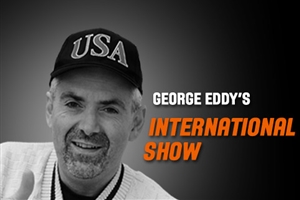
Round of 16 at Spain 2014 just around the corner for Senegal and Angola
SHEFFIELD (Julio Chitunda's African Message) - What Senegal and Angola displayed in the first two games of the 2014 FIBA Basketball World Cup suggests their increased chances of advancing to the second-round.
Nevertheless, there are a few obstacles to overcome.
Egypt, the other African representative in the competition, seem to have bleaker prospects, especially as they are competing in Group A against podium contenders such as hosts Spain, Brazil, Serbia and France.
Two games into the competition, both Senegal and Angola share 1-1 record.
The number one reason that makes these two countries dream big is coming from the players' recent and rarely seen attitude earlier in the competition.
An 87-64 defeat to Greece in their World Cup opener did not deter the Senegalese from stepping on the floor the following day, totally reinvented, just to upset Puerto Rico 82-75.
Sunday's win was not only Senegal's first this year. It was the West African country's first World Cup success since a 75-72 triumph in 1998 over Korea.
And their 0-5 record at the 2006 FIBA World Championship in Japan is now history for the team that qualified for Spain 2014 by finishing third at AfroBasket 2013 in Abidjan, Cote d'Ivoire.
In order to beat the Puerto Ricans, Cheikh Sarr's men did what they are known for: protecting the rim, blocking shots and making the most of their athleticism. These are some of the attributes that give Senegal hope.
As Mouhammad Faye puts it: "We're tall and we can run. And we'll play some tough defense."
Senegal outrebounded Puerto Rico 38-33 and had six block shots.
One man in particular has been making an impact for Senegal. His name is Gorgui Dieng.
The 2.11m center, who will enter his second season with the Minnesota Timberwolves after the World Cup, recorded his second double-double performance in two consecutive games, averaging 19.5 points and 13.5 rebounds.
Moreover, the players' attitude that I mentioned earlier in this column, was explained by Sarr, just minutes after they upset the runners-up at the 2013 FIBA Americas Championship for Men.
"Nobody expected us to at least win a game except us. We have to be greedy, say we want more and look forward."
Senegal's main concern is their unpredictability, but if they remain focused, surely they will write a significant chapter in their basketball history, as two wins could seal their first place ever in the next round of the competition.
On the other hand, the Angolans, who have not missed a World Cup tournament since 2002, conceded their first defeat in Spain 2014 on Sunday, falling 75-62 to Lithuania, but took a lot of positives out of it.
Forcing the Europeans to excel offensively in the final quarter - and as a result, causing a nervous and nail-biting feeling for the ever-colorful traveling Lithuanian fans - can only encourage the African champions to do better in the coming features against Australia, Mexico and Slovenia, after beating Korea on Day 1.
The Angolans showed up for Gran Canaria's Day 2 action with their trademark self-confidence, never-die attitude, fastbreaks - more frequently used at FIBA Africa Championships competitions - to force Lithuania into committing 16 turnovers and calling on their bench to outscore the Africans 36-23.
The top 16 is just around for Senegal and Angola. The question is: Can they make it?
Have the last word, Dieng, Faye, Maleye Ndoye, Reggie Moore, Olimpio Cipriano and Eduardo Mingas.
Julio Chitunda
FIBA
FIBA's columnists write on a wide range of topics relating to basketball that are of interest to them. The opinions they express are their own and in no way reflect those of FIBA.
FIBA takes no responsibility and gives no guarantees, warranties or representations, implied or otherwise, for the content or accuracy of the content and opinion expressed in the above article.























